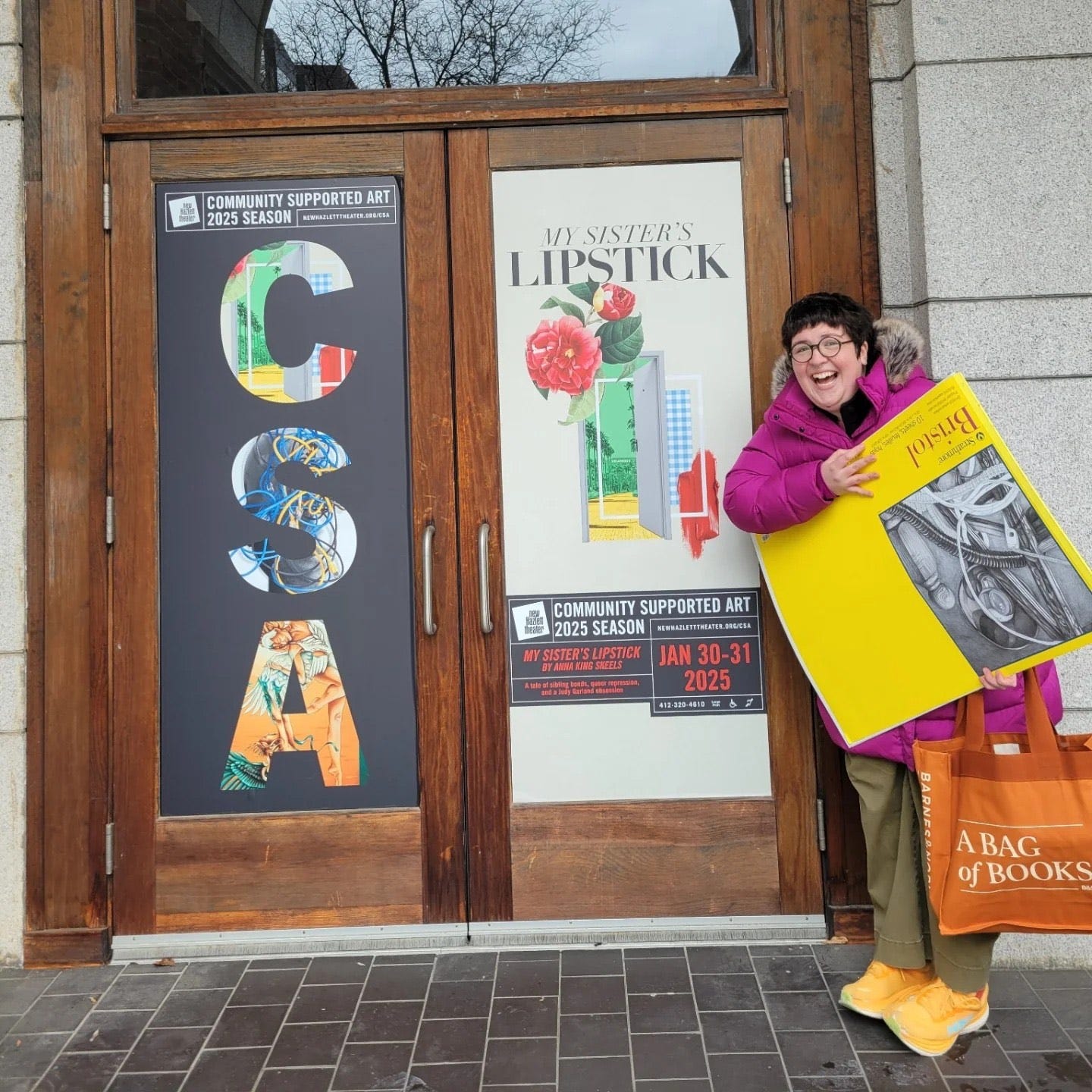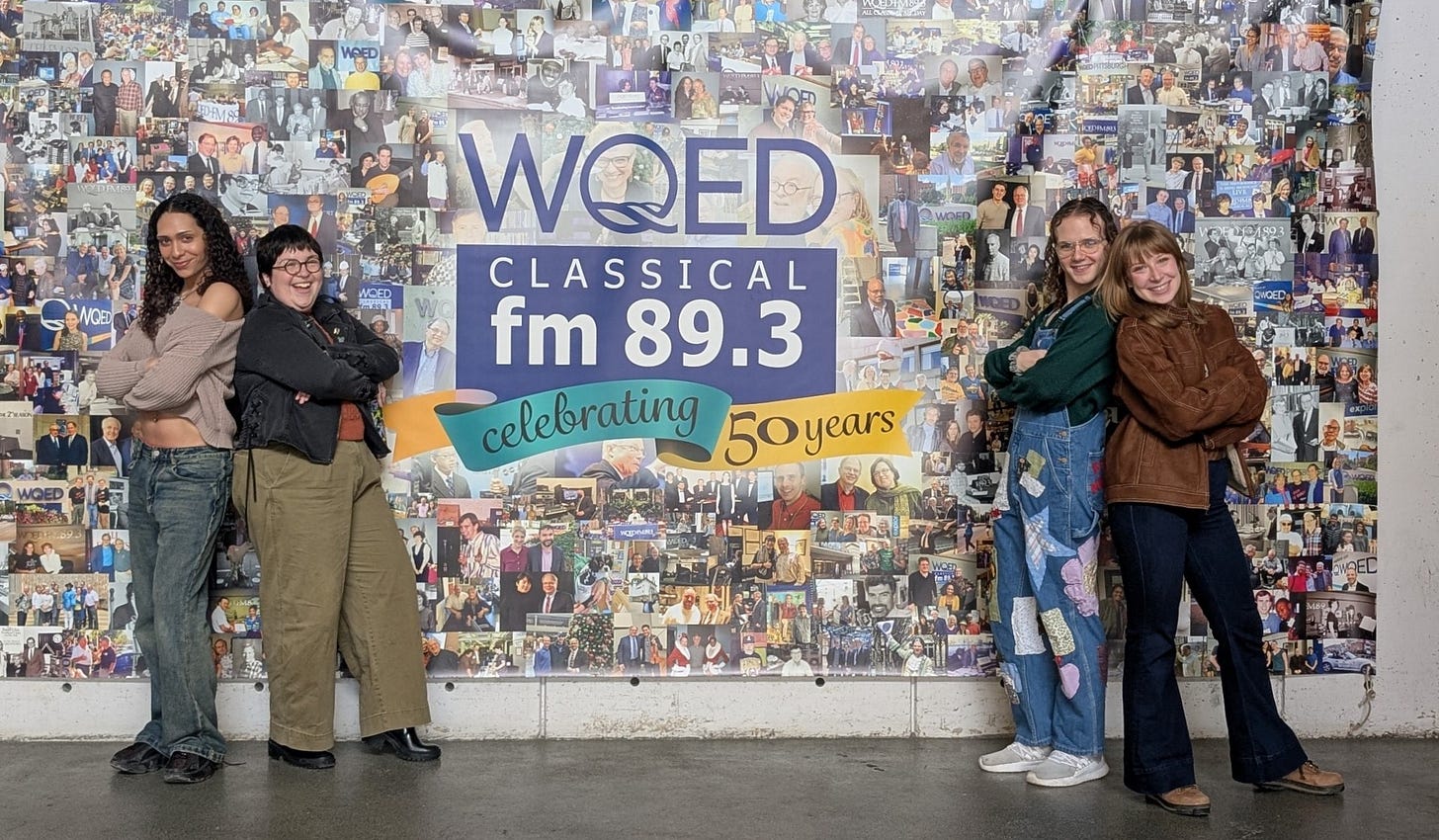Anna King Skeels: Queer Theory, Judy Garland, and Playwriting
The playwright's 'My Sister's Lipstick' premieres Jan. 30
During their first year at Point Park University, playwright Anna King Skeels read more than 150 plays, hoping to find a play about a trans person—but they couldn’t find anything.
“I had an abundance of material to go through but none of it was what I was looking for,” Skeels said. “If you can’t find what you want, you have to write it.”

That’s the origin of My Sister’s Lipstick, on stage as part of New Hazlett Theater’s Community Supported Art (CSA) Performance Series (Jan. 30-31). The play follows the life of George, who locks themself up in their apartment to escape the troubles of the outside world. Morrison, their sister, is the only person they allow inside. What follows is a story about how isolation affects self-expression and the active choice to continue living.
Originally hailing from Baltimore, Skeels moved to Pittsburgh for college, where they began their work on My Sister’s Lipstick. The new work got its start in a playwriting course in college with a prompt to base a character off of someone real – they could be famous, historical, or from their personal life. The first person that came to mind for Skeels was Judy Garland, an artist whose lifelong practice of performance has fascinated generations of queer artists. At times, Garland’s art was her downfall.
“It was her life blood, and it was her kryptonite – at points in her life, it was destroying her,” Skeels said. “I was like, ‘How am I going to make Judy Garland more interesting than Judy Garland?’”
Skeels began thinking about how Garland ties into queer performance and care. Garland has been considered to represent “the conundrum of queer subjectivity,” through her different life roles in her beauty and camp, but also her relateable instability and suffering. Skeels remembers being in high school English classes, where their teachers taught them how to examine queer characters in literature, an experience that they say significantly influenced how they see the world. It also influenced how they think about writing queer-centric plays and how characters and performers relate to an audience – who’s in charge, and who’s being taken care of.
How am I going to make Judy Garland more interesting than Judy Garland?
"These characters are queer characters, not just because they're gay, but because they're queer and different and interact with the world in a different way," Skeels said. "I try to keep that in my writing, but it also comes into how I experience every day."
My Sister’s Lipstick has had a few different iterations since starting as a 50 page final in that initial course. The play also became a one-act for a fringe festival and now, the CSA program provided through the New Hazlett theatre has allowed the play to continue to incubate and grow.
“I hadn’t told anyone who had worked on the show with me prior that I applied to the CSA program,” said Skeels, who, at 22, worried they were too young or inexperienced for the program. ”I was writing it, but I wasn’t very sure. I was feeling a bit unbound and insecure.”
That vulnerability is reflected in the tenderness of the play too. These are characters, Skeels said, who need each other, and they’re not afraid to tell each other that they need one another. It’s that tenderness that Skeels, dramaturg DT Burns, and director Pria Dahiya hope also translates to the audience.
“The play has grown a lot through this process,” Burns, who is also a professor of playwriting at Point Park University, said. “It’s rare for me to see a play that directly represents a lot of my experiences on stage.”
To Skeels, queer vulnerability is a deeply scary and difficult thing. Still, they feel that there is “such an abundance of people to hold you and love you and stand in community with you and are thrilled to see that authenticity.” Being able to produce this play through the CSA program has allowed Skeels to create art with other queer artists and designers, making My Sister’s Lipstick a more fully realized form of queer expression than Skeels could have ever imagined on their own. That’s why, though My Sister’s Lipstick encompasses fear and isolation, it’s also surrounded by joy and wonder.
“It’s like magic,” Skeels said. “When you write a play, you’re hoping and dreaming someone will do it. A play is written for performance, but it's also not promised and takes a lot of leg work to do, a lot of leaps and bounds to make it happen. To be on the other side of the leaps and bounds is like…whoa. It’s been a dream.”




